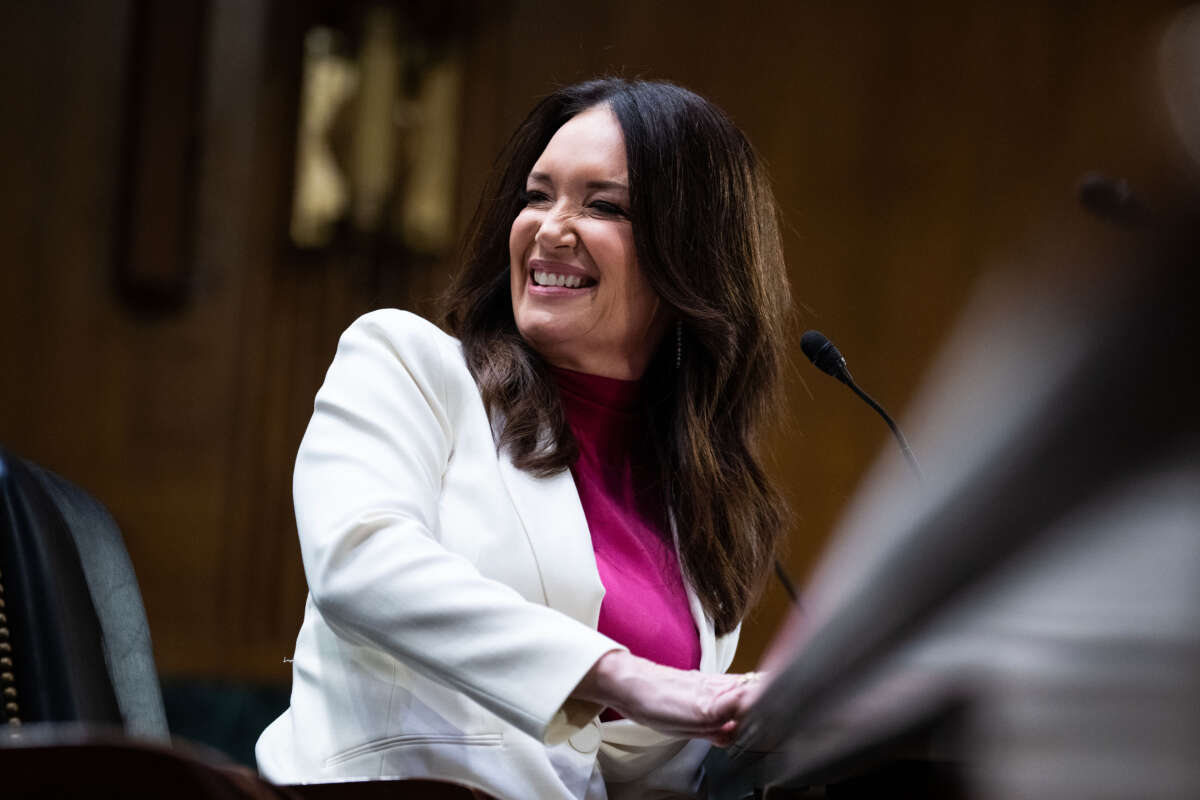Truthout is an indispensable resource for activists, movement leaders and workers everywhere. Please make this work possible with a quick donation.
Website managers from the United States Department of Agriculture (USDA) have ordered staff at multiple agencies to alter or remove pages on their websites that include discussion of the climate crisis, a move that will affect dozens of programs across the department.
Among the programs affected by the changes will be the U.S. Forest Service, which previously included a page on their website about how the climate crisis is contributing to an increase in the frequency and intensity of wildfires.
The action is similar to moves that were made early on in the first Trump administration, and indicates that President Donald Trump’s opposition to addressing human-made climate change will continue throughout his second term.
In an email sent to website managers from the USDA’s office of communications, agencies were informed on Thursday that they must “archive or unpublish any landing pages focused on climate change.” That directive also required those agencies to “identify all web content related to climate change and document it in a spreadsheet” for further review.
“For each piece of content, include the title, link, and your recommendation on how the content should be handled,” the email from USDA communications managers read.
Several pages that had previously discussed the climate crisis were down on Friday. The sites in question had included “important tools and information to help mitigate the effects of the climate crisis and research,” The Guardian reported.
Days after the order was given, a new report, released on Monday, detailed how millions of Americans will likely move away from areas affected by the climate crisis this year alone.
The report, published by First Street, a climate modeling firm, suggests that climate migration will likely increase drastically over the next three decades, with up to 15 percent of the U.S. population — roughly 1 in 6 residents — moving away from their home state or region to avoid areas prone to flooding, extreme heat, drought or wildfire smoke. In 2025, that could mean over 5 million people moving away from their homes to find safer areas to live.
In addition to forcing people to move, the climate crisis will substantially diminish the U.S. housing market, which is set to lose around $1.47 trillion in total value by the year 2055 due to the crisis, the report said.
Despite these concerns, the Trump administration has been unwavering in its denial of the climate crisis. In an appearance before the Senate Agriculture Committee on Thursday, Brooke Rollins, Trump’s nominee to lead USDA, downplayed her personal views on the climate crisis, telling senators that she would study the issue to understand how it relates to best farming interests. But during the 2024 campaign, Trump made clear that he would oppose any climate crisis-related policies, a point that Rollins recognized during her testimony.
Trump has frequently denied the devastating effects of climate change across the U.S.and the world, calling the crisis a “hoax” at several points over the past several years, including during his 2024 campaign. In his first few days back in the White House, he rolled back environmental protections that had been implemented by Biden, expanding drilling options for the fossil fuel industry and declaring a dubious “national emergency” on energy. He also withdrew the United States from the Paris Climate Accords, as he did during his first term as president.
“Trump’s declaration of a national energy emergency leverages a false premise to encourage expanded fossil fuel production at a time when the United States is already the top oil and gas producer in the world,” Wenonah Hauter, executive director of Food & Water Watch, said in a statement reacting to Trump’s initial anti-environmental actions. “As fires still rage across Los Angeles and communities impacted by hurricanes and floods still struggle to recover, we must rapidly reduce our dangerous fossil fuel production and dependence — not increase it.”
Holding Trump accountable for his illegal war on Iran
The devastating American and Israeli attacks have killed hundreds of Iranians, and the death toll continues to rise.
As independent media, what we do next matters a lot. It’s up to us to report the truth, demand accountability, and reckon with the consequences of U.S. militarism at this cataclysmic historical moment.
Trump may be an authoritarian, but he is not entirely invulnerable, nor are the elected officials who have given him pass after pass. We cannot let him believe for a second longer that he can get away with something this wildly illegal or recklessly dangerous without accountability.
We ask for your support as we carry out our media resistance to unchecked militarism. Please make a tax-deductible one-time or monthly donation to Truthout.
